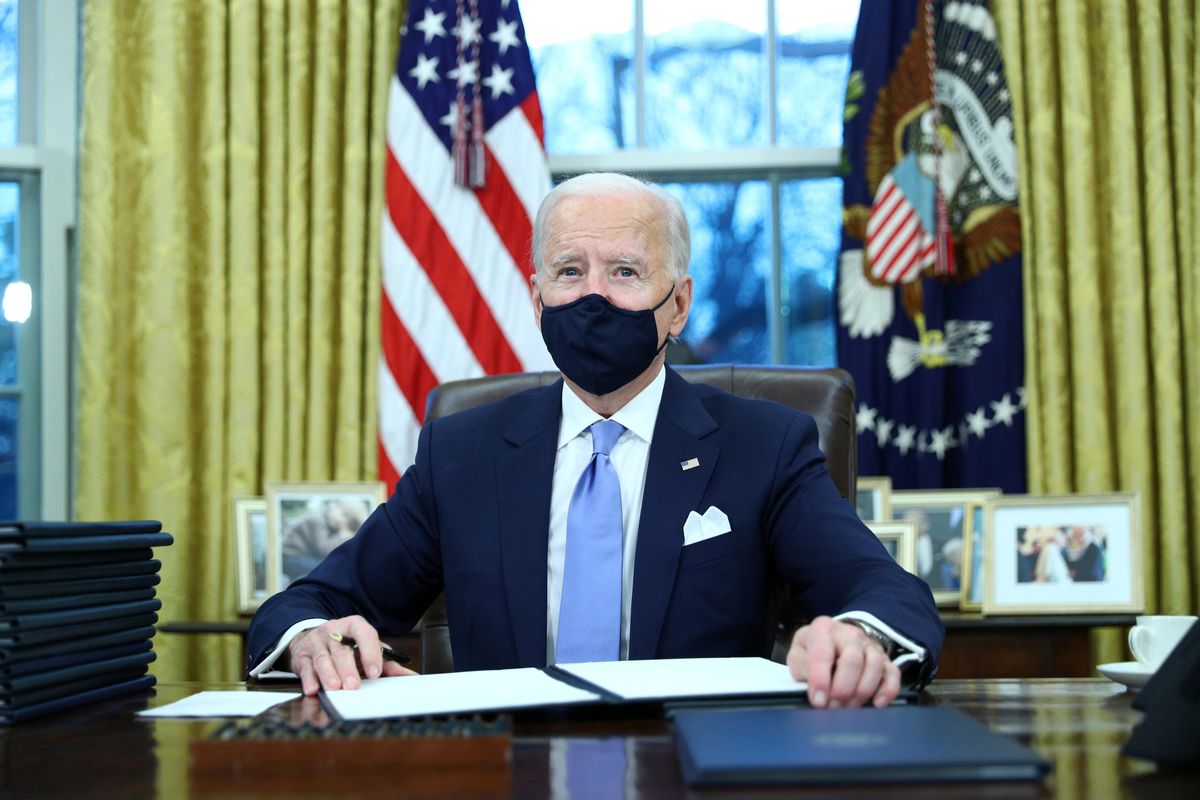Biden's first-day blitz: Just hours after taking the oath of office as the 46th US president, Joe Biden hit the ground running, signing a whopping 17 executive actions, most of which reverse the Trump administration's policies. The main areas of focus are COVID (reorganizing the federal response coordination structure, returning to the World Health Organization), climate change (rejoining the Paris Climate Accord, cancelling the Keystone KL pipeline), and immigration (ending the travel ban for certain Muslim-majority countries, stopping construction of the southern border wall, and giving more protection to so-called "Dreamers," undocumented people who entered the country when they were children). He also signed orders directing US federal agencies to root out discrimination and barriers to opportunity in their hiring and policies. We're watching how many of these actions will be challenged in the courts — as a lot of Trump's were four years ago — and whether they will hamper Biden's ability to get moderate Republican support for key legislation he can't get done just with the stroke of his pen.
Netherlands curfew: Once an outlier in Europe for its somewhat lax approach to the pandemic, the Dutch government has proposed implementing the country's first nationwide curfew since World War Two, while also banning all flights from the UK, South Africa and South America. With infections surging, Prime Minister Mark Rutte said he doesn't have a choice anymore as the new COVID strain from Great Britain threatens the Netherlands — where the government has come under fire for being the last EU member state to roll out vaccines (only 100,000 have gotten the jab so far). The decision comes at a tough time for Rutte, whose entire government stepped down last Friday over a childcare subsidies fraud scandal. Rutte will remain interim PM until after new elections are held, but he must rely on broad support from all political parties to get his new pandemic response measures — including the curfew — approved in parliament. Will the outgoing Rutte manage to convince enough skeptics to back his measures to keep the virus in check before the March 17 vote?
Fresh violence in Darfur: Just weeks after the UN and the African Union announced they would end a 13-year long peacekeeping mission in Sudan's long-troubled Darfur region, a fresh outbreak of violence has claimed more than 100 lives in recent days. The violence began over a stabbing that quickly led to militia group attacks that forced 50,000 people to flee their homes. The clashes take place months after Sudan's transitional civilian-military government signed a shaky deal with Darfur rebel groups that raised hopes for peace in a long-running territorial, ethnic, and sectarian conflict that pits local rebels against the central government. The fighting has killed some 300,000 and displaced more than 5 million since 2003, as the government employed militias to carry out a genocide against the local population. If the Sudanese are unable to calm tensions soon and ensure security, foreign peacekeepers may have to cancel their withdrawal and stay in Darfur longer than expected.
















